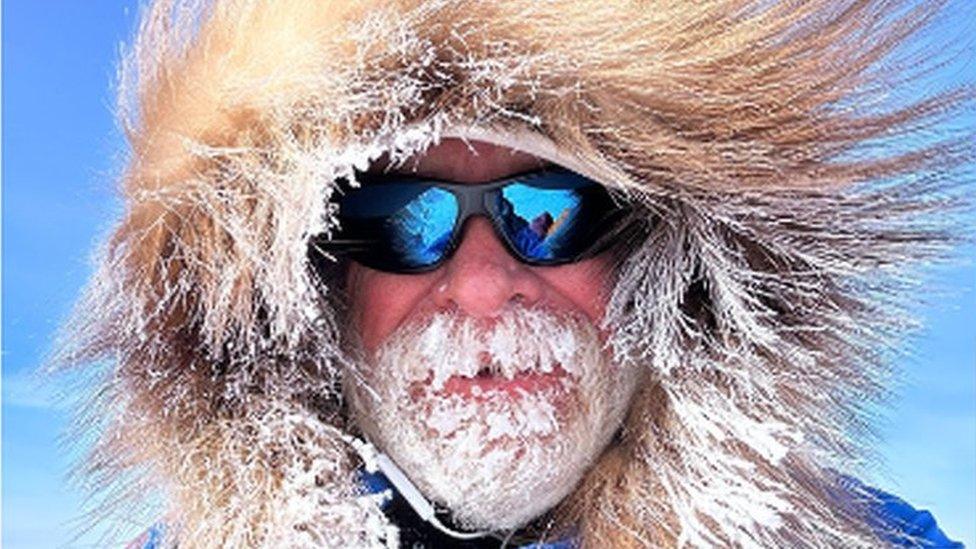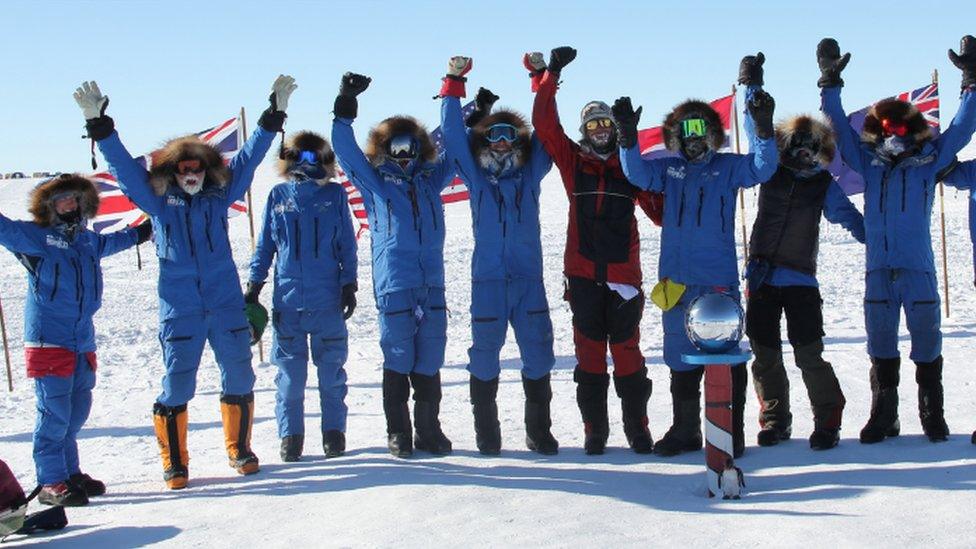Coventry surgeon completes medical expedition to South Pole
- Published

Prof Chris Imray met his new grandson for the first time when he returned home from the South Pole
A surgeon has returned from a 47-day medical research expedition that saw him ski for seven hours a day across the South Pole.
Prof Chris Imray, from Coventry, is researching the impact of polar activity on human metabolism.
With a team made up of civilians and the military, Prof Imray collected data in temperatures dipping to -50C (-58F).
He said the expedition was "an amazing trip" and hopes his findings could lead to medical breakthroughs.
"Travelling to remote places with hostile environments is my passion but I'm hoping we get translational benefits," Prof Imray, who is based at University Hospitals Coventry and Warwickshire NHS Trust, said.
He has previously scaled the world's highest mountains, and research from a 2007 expedition to Everest provided insights that have helped reduce the mortality rate from open aortic surgery, he said.

The expedition team skied for seven hours a day to travel 590 miles (950km)
The expedition to the South Pole took three years of planning and cost £1m, which was paid for by sponsors.
All of the explorers were away from their families for Christmas as they covered the 590 miles (950km) from the Messner Start on the Ross Ice Shelf.
"Despite taking in around 5,500 calories a day - at least twice the normal amount - there was a weight loss of between four and 13 kilos," Prof Imray said.
He said they were testing whether brown fat - metabolically-active fat normally only seen in newborn babies - was "switched on" in the freezing temperatures.
"We weighed ourselves every five days, so we recorded when the weight loss occurs," he said.
"You lose quite a bit to begin with, then it seems to steady out, but it seems to go quicker again when you are at higher altitudes."
Prof Imray will spend the next year analysing the gathered data and added: "Hopefully this research may change the way we manage our patients."

Follow BBC West Midlands on Facebook, external, Twitter, external and Instagram, external. Send your story ideas to: newsonline.westmidlands@bbc.co.uk, external